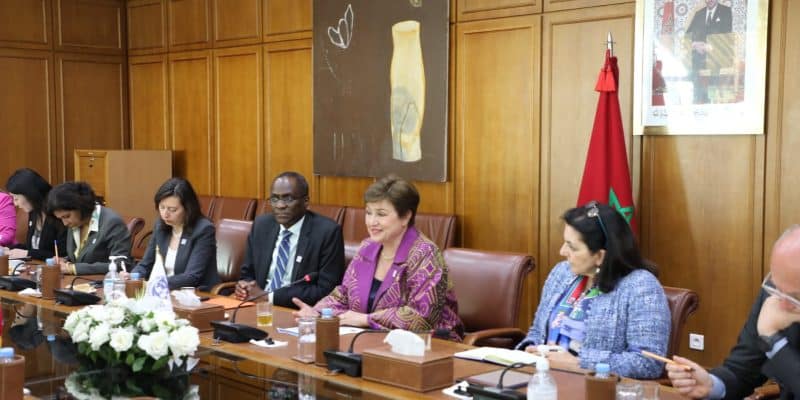Strengthening capacity to prepare for natural disasters and stimulate the financing of sustainable development in several cities. This is the purpose of the $1.3 billion granted by the International Monetary Fund (IMF) to Morocco following the earthquake that killed 2,900 people in the Marrakech region.
In the aftermath of the magnitude 7 earthquake that struck the Al Haouz region south of Marrakech in Morocco, the stakes are twofold: economic and environmental. This deadly earthquake has put the question of how Moroccan towns and cities can adapt to geological and meteorological phenomena back on the table. While the Cherifian Kingdom has demonstrated its resilience in terms of relief efforts, the financial requirements for rapid and ecological reconstruction are considerable.
The International Monetary Fund (IMF) is lending the Cherifian Kingdom 1.3 billion dollars as part of its Resilience and Sustainability Facility (RSF), which aims to support the growth of countries, in line with one of its three core missions. This support will be used to implement a number of green projects in Marrakech and other cities, including Rabat and Casablanca.
“The financing granted corresponds to one billion Special Drawing Rights (SDRs, specific reserve assets backed by five currencies, including the US dollar and the euro). It should enable Moroccans to seize opportunities to decarbonise all sectors of the economy, while at the same time addressing climate vulnerability”, says the financial institution headed by Kristialina Georgieva.
A decisive meeting in sight
The Moroccan authorities will use these funds to build new roads and infrastructure, as well as new buildings that take into account the natural environment and sustainable materials. According to official figures, this initiative should make it possible to rehouse the people of Marrakech, who lost at least 50,000 homes after the tremors of 8 September 2023.
Read also-MOROCCO: Faced with coastal erosion, the World Bank supports climate resilience
This dramatic situation is not preventing the Annual Meetings of the International Monetary Fund (IMF) and the World Bank from being held. The event, scheduled for 9-15 October, is being held in the host city of Marrakech. Around the Bretton Woods institutions, central bank governors, finance and development ministers, private sector leaders and academics will discuss new reforms and technologies for the ecological transition of all the world’s territories.
Benoit-Ivan Wansi






